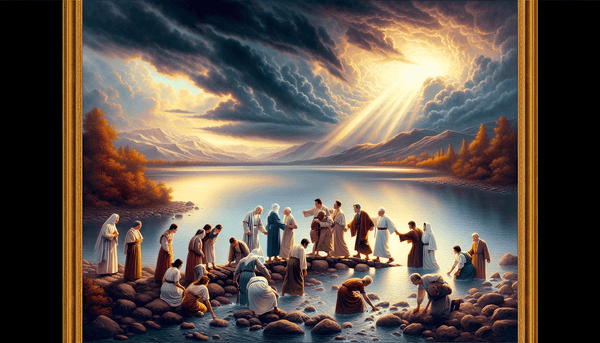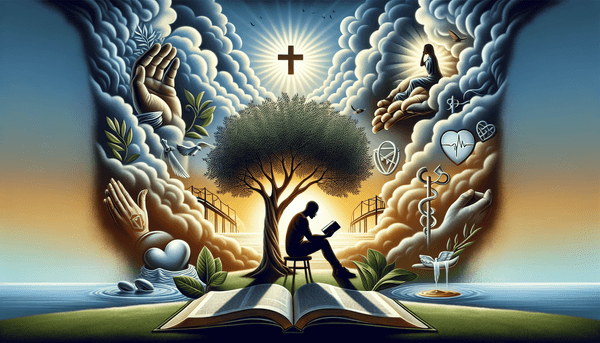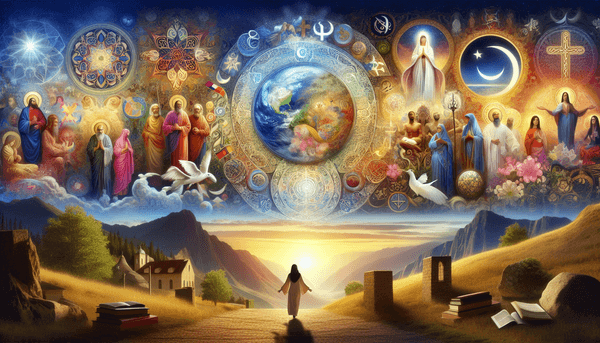Sharing Our Burdens
The New Testament encourages believers to bear one another's burdens, thereby fulfilling 'the law of Christ' (Galatians 6:2). This mutual support is a hallmark of the Christian community, where individuals are urged to confess their sins and struggles to one another and to pray for each other, as a means of healing and restoration (James 5:16). Sharing burdens fosters vulnerability, accountability, and trust, strengthening the bonds within the body of Christ. The epistles further encourage believers to rejoice with those who rejoice and mourn with those who mourn (Romans 12:15), embodying the unity and empathy expected within the church. This connectedness is beautifully depicted as one body with many members, each member caring for the others (1 Corinthians 12:26).
The Power of God in Acts 19
In Acts 19, we witness the extraordinary power of God working through the Apostle Paul. Miracles such as healing the sick with handkerchiefs or aprons that had touched Paul's skin (Acts 19:11-12) and casting out evil spirits illustrate the divine authority bestowed upon him. The account of the seven sons of Sceva, who failed to cast out demons in the name of Jesus, further demonstrates the supremacy and necessity of invoking the true name of Jesus with faith and authority (Acts 19:15-16). These events underscore the primary theme of Acts 19, which highlights the spread of the gospel and the confirmation of its truth through signs and wonders. The transformative power of the Holy Spirit in believers is also emphasized, showing that faith is not only in words but also in power (1 Corinthians 2:4-5).
Conclusion
The observance of the Sabbath, the sharing of personal burdens, and the witnessing of God's power are more than historical accounts or religious mandates; they are vibrant elements of a living faith. These principles teach us about the value of rest in God's design, the strength found in communal support, and the awe-inspiring power that confirms the message of the gospel. As we reflect on these biblical themes, we are reminded of their enduring relevance and the guidance they offer in our daily lives. They serve as a reminder that our faith is not stagnant but is continually manifested through our actions and relationships, echoing the transformative potential of these ancient truths.
FAQ
Q: What does the Bible say about sharing our burdens with one another?
A: The Bible encourages believers to support each other by sharing struggles. Galatians 6:2 teaches us to 'Carry each other’s burdens,' while James 5:16 advises us to 'confess your sins to each other and pray for each other so that you may be healed.' These verses emphasize the importance of community and mutual care.
Q: What events are described in Acts 19?
A: Acts 19 describes the powerful ministry of the Apostle Paul in Ephesus, including miraculous healings and the casting out of demons. It also recounts the failed attempt of the seven sons of Sceva to use Jesus' name to cast out evil spirits, demonstrating the true authority of the name of Jesus.
Q: How does Acts 19 demonstrate the power of God?
A: Acts 19 demonstrates God's power through Paul's extraordinary miracles, such as healings and exorcisms. These signs and wonders validated the gospel message and showcased the supremacy of God over all spiritual forces.
Q: What is the main theme of Acts 19?
A: The main theme of Acts 19 is the advancement of the gospel through the powerful works of the Holy Spirit, which affirmed the message preached by Paul. It highlights the clash between the new Christian faith and prevalent beliefs and the transforming influence of the gospel on individuals and society.






